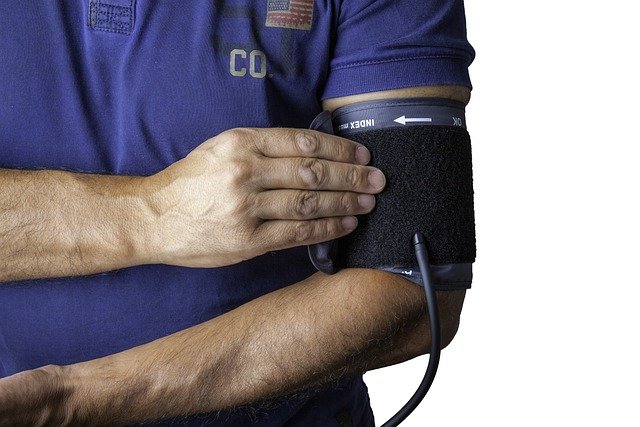Chronic Kidney Disease: Recognizing Signs, Causes, and Managing Health
Chronic Kidney Disease (CKD) affects approximately 37 million Americans, yet many people remain unaware they have this progressive condition until it reaches advanced stages. Understanding the early warning signs, underlying causes, and effective management strategies is crucial for preserving kidney function and maintaining quality of life. Early detection and proper treatment can significantly slow disease progression and prevent complications.

What is Chronic Kidney Disease (CKD)?
Chronic Kidney Disease is a long-term condition where the kidneys gradually lose their ability to filter waste and excess fluid from the blood. Unlike acute kidney injury, which develops suddenly, CKD progresses slowly over months or years. The disease is classified into five stages based on estimated glomerular filtration rate (eGFR), with stage 1 representing mild kidney damage and stage 5 indicating kidney failure requiring dialysis or transplantation.
The kidneys perform essential functions including filtering toxins, regulating blood pressure, producing red blood cells, and maintaining electrolyte balance. When kidney function declines, these processes become impaired, leading to the accumulation of waste products and fluid imbalances that can affect multiple organ systems throughout the body.
Key Signs and Symptoms
Early-stage CKD often presents no noticeable symptoms, earning it the nickname “silent disease.” However, as kidney function deteriorates, various signs may emerge. Common symptoms include persistent fatigue, difficulty concentrating, decreased appetite, and sleep problems. Physical manifestations may include swelling in the feet, ankles, or around the eyes, particularly in the morning.
Advanced CKD can cause more pronounced symptoms such as shortness of breath, nausea, vomiting, muscle cramps, and changes in urination patterns. Some individuals experience foamy urine, which may indicate protein leakage, or changes in urine color. High blood pressure that becomes difficult to control despite treatment can also signal kidney problems. Additionally, patients may notice metallic taste in the mouth, skin itching, or unusual bleeding or bruising.
Causes and Risk Factors
Diabetes and high blood pressure are the leading causes of CKD, accounting for approximately two-thirds of all cases. Diabetes damages the small blood vessels in the kidneys over time, while uncontrolled hypertension puts excessive strain on kidney filtering units called nephrons. Other medical conditions that can lead to CKD include polycystic kidney disease, glomerulonephritis, and autoimmune disorders.
Several risk factors increase the likelihood of developing CKD. Age plays a significant role, as kidney function naturally declines after age 40. Family history of kidney disease, heart disease, and certain genetic factors contribute to increased risk. Lifestyle factors such as smoking, obesity, and prolonged use of certain pain medications can also damage kidney function. African Americans, Hispanics, and Native Americans face higher risks due to genetic predisposition and higher rates of diabetes and hypertension.
Diagnosis and Treatment Costs
Diagnosing CKD involves several tests to assess kidney function and identify underlying causes. Blood tests measuring creatinine levels and estimated glomerular filtration rate provide crucial information about kidney performance. Urine tests detect protein, blood, or other abnormalities that indicate kidney damage. Additional diagnostic procedures may include imaging studies like ultrasounds or CT scans, and occasionally kidney biopsies.
Treatment costs for CKD vary significantly depending on disease stage, treatment approach, and geographic location. Early-stage management focusing on lifestyle modifications and routine monitoring may cost $2,000-$5,000 annually. Advanced CKD requiring specialized care can reach $15,000-$25,000 per year. Dialysis treatment averages $70,000-$90,000 annually, while kidney transplantation involves initial costs of $400,000-$500,000, followed by ongoing immunosuppressive therapy costs of approximately $25,000 yearly.
| Treatment Stage | Annual Cost Range | Primary Components |
|---|---|---|
| Early CKD (Stages 1-2) | $2,000-$5,000 | Regular monitoring, lifestyle counseling |
| Moderate CKD (Stages 3-4) | $15,000-$25,000 | Specialist care, complications management |
| Advanced CKD (Stage 5) | $70,000-$90,000 | Dialysis or transplant preparation |
| Post-Transplant | $25,000+ | Immunosuppressive therapy, monitoring |
Prices, rates, or cost estimates mentioned in this article are based on the latest available information but may change over time. Independent research is advised before making financial decisions.
Managing Health with CKD
Effective CKD management focuses on slowing disease progression and preventing complications through comprehensive lifestyle modifications and medical care. Dietary changes play a crucial role, including limiting sodium, phosphorus, and potassium intake while ensuring adequate protein consumption. Working with registered dietitians familiar with kidney disease can help patients navigate complex nutritional requirements.
Blood pressure and blood sugar control remain paramount in CKD management. Regular monitoring and adjustment of treatment plans help maintain target levels. Exercise, when appropriate for individual conditions, can improve cardiovascular health and overall well-being. Avoiding substances harmful to kidneys, including certain over-the-counter pain relievers and herbal supplements, is essential.
Regular follow-up appointments with nephrologists allow for monitoring disease progression and adjusting treatment strategies. Patients should maintain open communication with healthcare teams about symptoms, concerns, and treatment tolerability. Preparing for potential future treatments, including dialysis or transplantation, helps ensure smooth transitions when kidney function declines significantly.
Chronic Kidney Disease represents a serious health challenge that requires early recognition, comprehensive management, and ongoing medical support. Understanding the warning signs, risk factors, and available treatment options empowers patients to take active roles in preserving kidney function and maintaining quality of life. While CKD cannot always be prevented, proper management can significantly slow progression and help patients live fulfilling lives despite their diagnosis.
This article is for informational purposes only and should not be considered medical advice. Please consult a qualified healthcare professional for personalized guidance and treatment.




